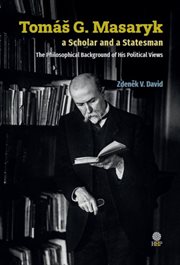Nonfiction
eBook
Details
PUBLISHED
Made available through hoopla
DESCRIPTION
1 online resource
ISBN/ISSN
LANGUAGE
NOTES
The importance of the political thought of Thomas G. Masaryk (1850−1937), the first president of Czechoslovakia, has been based on two considerations. One was his image as the principal shaper of the democratic culture in inter-war Czechoslovakia. The other image was as a model of political prudence and sagacity, not only for East-Central Europe, but one recognized universally. He was called by his contemporaries "the wisest European of today" and "the greatest man in Europe." John MacCormac, writing in the New York Times in 1930, saw in Masaryk a personage of the same caliber as Washington, Lincoln, and Wilson. Masaryk brought to his political activity the assets of profound background in scholarship, as well as a religious flavor. A leitmotif of Masaryk's intellectual search was his desire to establish a religious dimension to the human experience. Unable to accept his native Catholicism, whether traditional or liberal, he turned to the two modernizing trends in German Lutheranism that had jettisoned traditional dogma and liturgy. Zdenĕk V. David's main interest is to probe the mind of the man as revealed through his writings on philosophy and religion, and to map out his position in relation to the principal Austrian, British, French, and German, to some extent also American and Russian, thinkers with whom he dealt in his philosophical and religious writings. He focuses on the ideas behind Masaryk's political pronouncements and activities
Mode of access: World Wide Web







